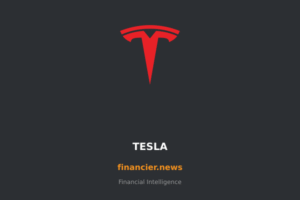$SPY $QQQ $VOO
#Entrepreneurship #BusinessSuccess #InvestmentJourney #SnackIndustry #HealthyEating #WallStreetToMainStreet #FinancialFreedom #CompanyTurnaround #BusinessAcquisition #StartupGrowth #MarketDisruption #SustainableBusiness
In 2011, Charles Coristine made a decision that would dramatically alter the course of his career and life. After years of grinding away in the high-pressure environment of Wall Street, Coristine felt a profound sense of burnout that led him to seek a change. This quest for transformation guided him towards a seemingly unusual choice for a financier: purchasing a struggling snack company. The company, LesserEvil, was far from a success story at the time. Labelled as “flatlining”, it was on the brink of disappearing from the market altogether. Coristine, however, saw potential where others saw failure and decided to take a leap of faith, acquiring the company for $250,000. This move would become the foundation of a remarkable journey in the snack industry.
Coristine’s approach to revitalizing LesserEvil involved a combination of strategic business acumen and a deep commitment to product quality. Recognizing early on that the burgeoning health food movement represented a prime opportunity, he pivoted the company’s focus towards producing healthier snack options. This shift was not merely about changing the ingredients but about creating a new brand ethos centered around wellness, sustainability, and ethical production practices. Coristine believed that consumers were increasingly looking for products that not only tasted good but also aligned with their values concerning health and environmental responsibility.
Under Coristine’s leadership, LesserEvil underwent a complete transformation. The company overhauled its product lineup, introducing items that featured organic, non-GMO ingredients, and cleaner labels. Packaging was redesigned to reflect the brand’s commitment to sustainability, utilizing environmentally friendly materials. These changes resonated with consumers, and the brand started to gain traction. As the company grew, it expanded its distribution channels, moving beyond health food stores and into mainstream retailers. The strategic shift towards health and sustainability proved to be prescient, positioning LesserEvil ahead of market trends and driving significant growth.
The culmination of Coristine’s efforts came when LesserEvil was sold for $750 million, a testament to the remarkable turnaround that he had achieved. This sale marked not only a personal success for Coristine but also highlighted the potential for success in the health food industry. It serves as a compelling case study for entrepreneurs and business leaders, illustrating the importance of vision, adaptability, and the courage to defy conventional wisdom. From a burnt-out Wall Street professional to a successful entrepreneur, Coristine’s journey with LesserEvil demonstrates that with the right approach, even the most underperforming businesses can be transformed into industry leaders.











Comments are closed.